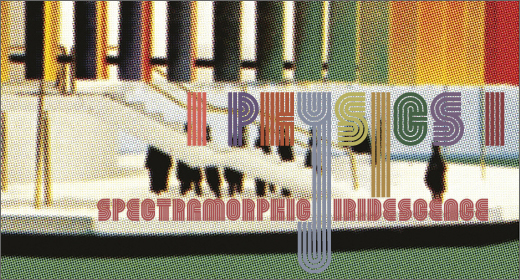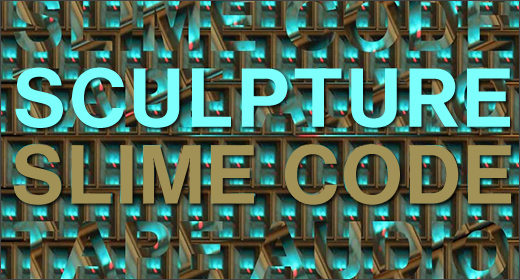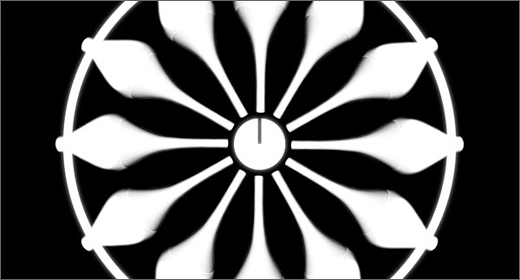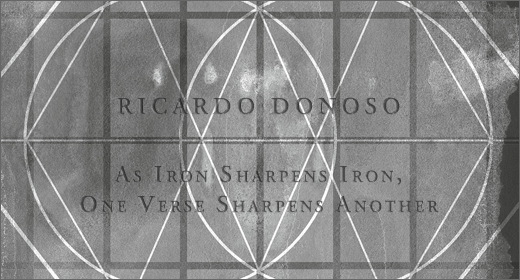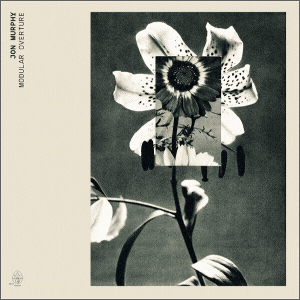For a record as borderline obliterated as this there’s a strange warmth that envelops Spiritual Church Movement, much like the sable trimming surrounding the oddly mechanical looking and richly ornamented gold filigree of the Russian Tsar’s skullcap on the front cover.
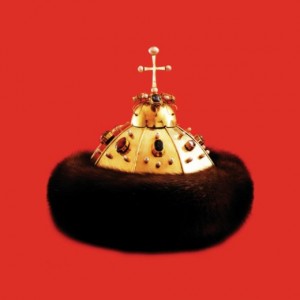
[Release page] What exactly are the ingredients that work together to create a great noise record? Anyone? I’m no expert on the subject as I don’t actually own all that many records in the “noise” genre but on the strength of Spiritual Church Movement, why on earth not? Even in today’s accessible, web and application rich environment it’s often still only possible to take only the briefest of glimpses at a release before buying, and in the case of a noise record, that glimpse could be as unrepresentative of the whole as the cover is of a book. What’s more, there’s arguably nothing more subjective or sensitive to individual tastes than noise, so how does one know whether to purchase something or not? Luckily some labels responsible for this sort of output, such as Digitalis or Type, are now erring towards full disclosure, with complete album streaming on their websites, which makes this decision a hell of a lot easier. Thanks be to Bandcamp and Soundcloud!
Perispirit is the partnership of Ricardo Donoso and Luke Moldof that has a slew of cassette-only releases to its name, so aside from a split LP with Brendan Murray this is their debut outing on vinyl. Moldof gene-splices and genetically re-engineers analog material with seriously deranged and deformed results while Donoso (who most recently impressed with his atmospheric and brooding Progress Chance LP also on Digitalis) mauls his particular contributions digitally. But instead of working together to create beautiful hybrid entities like Funckarma and Cor Bolten’s alien Mings Feaner, Perispirit’s two forms turn against each other on a chaotic battlefield with catastrophic results.
The “14th Annual Seance” begins in relatively familiar territory: detuned TVs and radios pick up random signals amidst the hiss of static and noise, a few notes from some lounge bar here, arpeggio twitter there. The noise begins to take on random and altogether more sinister forms, coalescing into some deranged, reflected communication as the ghosts in the machines emerge, suddenly transmitting the guttural screams of a throat-slashed android, phones redialling on a loop and rasping, murderous breaths that strafe among the jitter and flash of TV static. And whilst some of the sounds you hear might sound vaguely familiar, even they were the reversed or nightmarish flashbacks from some manic and distorted film or other, all rapid camera panning and forced blur. Finally, the dark, commanding megaphonic voice of the spirit rises, chanting amidst the singed remnants of celebratory fanfare accompanying grid parade as manic banks of computers calculate and twitter. Contact is clearly made with something here, but what the hell is it?
For a record as borderline obliterated as this there’s a strange warmth that envelops Spiritual Church Movement, much like the sable trimming surrounding the oddly mechanical looking and richly ornamented gold filigree of the Russian Tsar’s skullcap on the front cover. This is especially true of the far more musical “Attn: Deficit Disorder” as a comforting blanket of synthesizer is wrapped around the listener at just the right moments to cushion against or relieve any shock and trauma caused by the tumbling barrage of debris hurled from the core of whatever explosive event we are witnessing. In part one, plummy, rounded arpeggios and a furry, pulsing buzz are foremost in the mix, underpinning the crackle, buzz and chirrup of digital birds, a mental preparation for the hell that breaks loose in part two as Donoso feeds everything through an ice-crusher, mixes liberally with miscellaneous, sharply-cut gemstones and then fires the lethal debris back in our faces. There are slow-motion marching drums, looped computer blips, garbled signals and tinnitus delay that leads into another beautiful synth section, before that dissolves into a luscious, almost soothing, rhythmic bass rumble.
At just over thirty-minutes it isn’t exactly what one would call an album, but the incredibly dense arrangement and composition of both tracks (split into three parts apiece on the digital edition) make it clear that immense effort went into their construction and subsequent destruction. How Donoso and Moldof shaped and edited together this work is a mystery. What made them decide that, yes, this looped melody should go here, flowing seamlessly into that barrage of sound there, and when did they finally look at it that think: aah… it’s done? More the to the point, how did they manage to make it sound so structured and so rhythmically driven when for all intents and purposes its a completely random chain of events? What constitutes a good noise record? Who knows, but Spiritual Chuch Movement is as good and accessible a place to start as you’re likely to get.
Devilishly clever stuff.
Spiritual Church Movement is available on Digitalis. [Release page]











